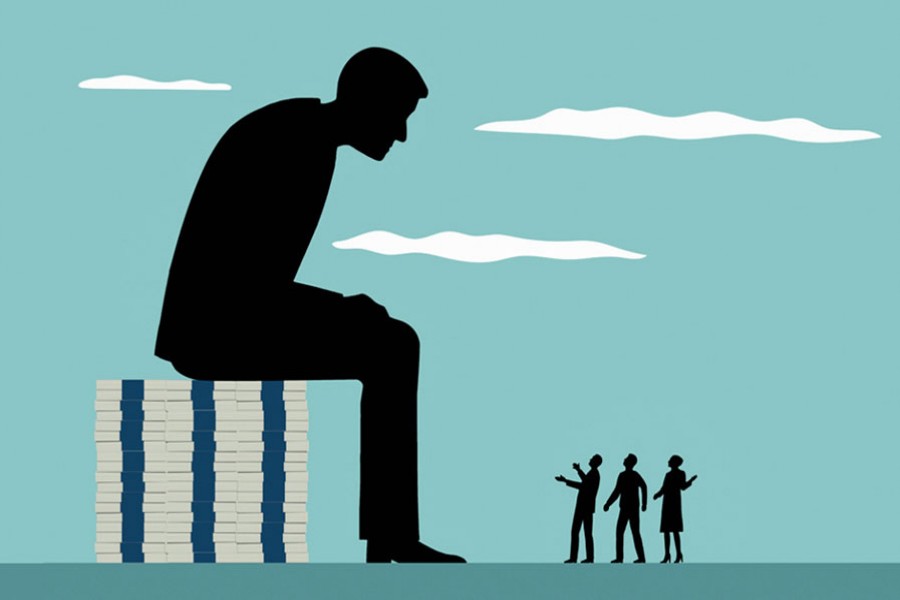
Published :
Updated :

Away from the noise coming from the recent market volatility, safely staying are a few fortunate groups in the country. Life seems to be colourful or even enchanting to some of them, if not so to millions who struggle to run their kitchens every day.
The 'fortunate groups' may include the direct beneficiaries of the price upsurge, the filthy rich and ones in the high income bracket and those who live on the taxpayers' money. None of them would either say publicly that price-hike of essentials is good for anyone. A few would try to justify the steps like upward revision of utility tariffs without public hearing, against the will of the stakeholders. Abnormal price rise in a free market isn't the fault of regulators, even if it's manipulated by a syndicate!
Except criticisms over public suffering on social media and the political fronts, the ultimate impacts of increasing prices of goods, commodities and services on families are not officially studied in our country.
When the vast majority of the population has to spend amounts beyond their means from their pockets to buy, say, cooking and fuel oils, the money surely goes to nowhere but certain people and entities. It's a loss for many, and obvious gain for a few others. And the losers still have to come to the market while the gainers, a smaller number possessing much more resources, don't need to spend a fraction of income for purchasing the same items despite a high standard of living.
The losers' number surges as many of them have lost their jobs, business opportunities and livelihoods in more than two years of coronavirus crisis. The 'new poor', whatever may be their number, have by this time joined the old ones. Some desperate beggars are also seen on the streets these days.
Already in a consumerist mode, a garment worker, a wage earner, a freelancer, a mechanic, a technician, a nurse, or a small trader makes a little bit of money only to see that it's not his/hers to stay for long.
Construction of large infrastructure at high costs, and fiscal and other supports to big fishes in society doesn't guarantee that the commoners would eventually get the cash from procurements or distribution. They are the ones who are being made hostage to the tyranny of the forces of what the economists call 'crony capitalism'.
Other than the beneficiaries of the safety net programmes and public servants, who else receives 'welfare' money from the exchequer? Who knows how millions of lower middle and lower income families are meeting the costs of living! The fate of most of more than two million job market entrants a year is uncertain and their families know their pains of supporting the unemployed children including educated ones.
To a large extent, the process of trickle-down effect doesn't work to keep the status quo for the vulnerable classes, let alone ensure graduation of the poor. Banks apply more than strict rules for small loan recipients but remain lenient to big loan defaulters.
With national resources increasingly being concentrated in the hands of a privileged few and barely any mechanism to channel them equitably to all others inclusive of aspiring entrepreneurs and hard-working men and women, it's hard to address the widening disparity.
This goes against the spirit of the country's constitution, which, in its preamble, pledges a 'society, free from exploitation, a society in which the rule of law, fundamental human rights and freedom, equality and justice, political, economic and social, will be secured for all citizens'.
Welfare of only the minority doesn't form a democratic society, nor does tyranny of the majority do justice to all citizens. However, the state needs to be just in providing opportunities for growth of each individual by creating an enabling atmosphere and functional system for generations.
khawaza@gmail.com


 For all latest news, follow The Financial Express Google News channel.
For all latest news, follow The Financial Express Google News channel.